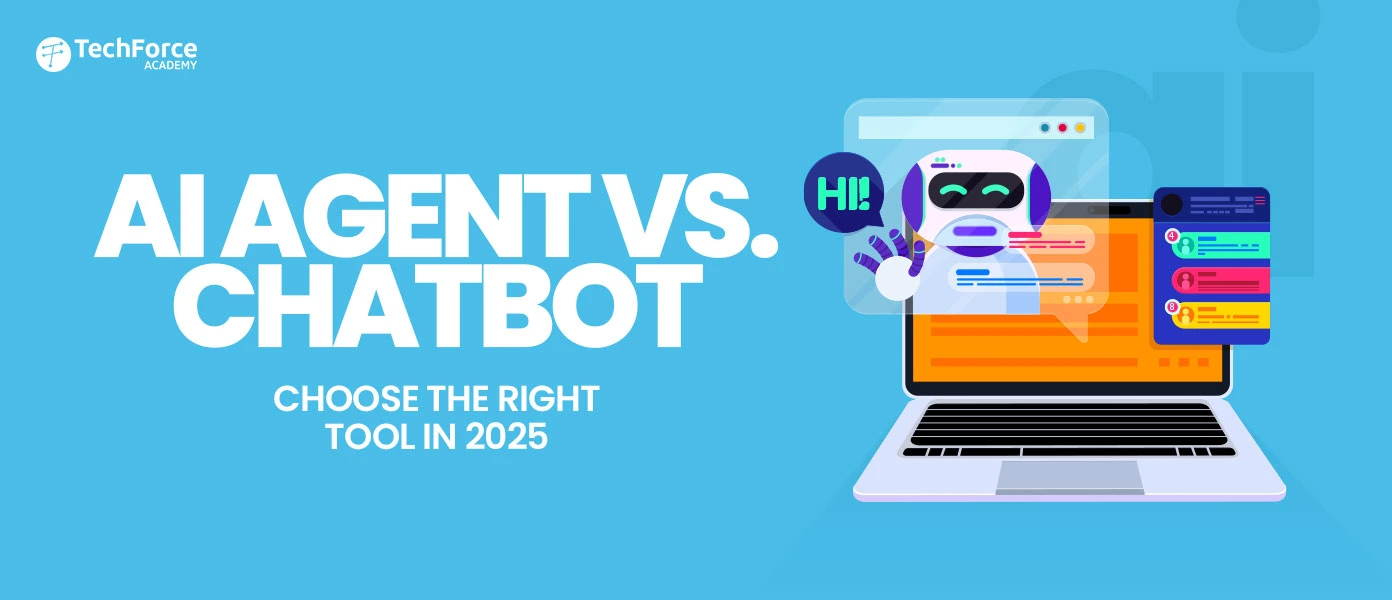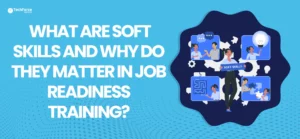We’re all seeing it—AI isn’t just something for the tech wizards; it’s part of our everyday lives, from the apps we use to the AI-powered customer service we receive. AI is changing how we shop, work, and even chat. But here’s the thing—these are not the same types of AI. While AI chatbots adhere to predefined rules and limitations, AI agents, or intelligent agents, possess the capacity for autonomous learning and decision-making, evolving with each interaction.
Chatbots have been around since the 1960s, starting with simple programs like ELIZA, but AI intelligent agents are the result of years of advancements in artificial intelligence and intelligent agents. They’re like supercharged assistants, handling complex tasks and adapting to changing information.
Customer expectations are rising alongside these advances – 81% expect faster service, and 73% expect more personalised interactions, according to Salesforce. This push for speed and personalisation is driving companies like Square and Wealthsimple to invest in AI agents. Unlike chatbots, these autonomous AI agents provide advanced, autonomous support that can anticipate needs and deliver proactive solutions that include multistep tasks.
In the following blog, we’ll break down the core differences between AI chatbots and AI agents and show you how to choose the best solution for your business in 2025. Let’s explore the future of AI in customer service together!
What is an AI Chatbot?
An AI chatbot is a software application. It simulates human conversation. It is capable of processing and responding to text or voice-based queries and requests. It functions as a virtual assistant, offering support within defined limitations.
Using Natural Language Processing (NLP) and machine learning, chatbots interpret user inputs and offer relevant, pre-programmed responses. While they can provide quick and reliable support, they’re limited to handling straightforward, repetitive tasks rather than adapting to complex, open-ended queries.
AI chatbots are typically constrained by predefined parameters. Programmed with specific rules or trained on limited datasets, they produce controlled and predictable responses.
For example, an e-commerce chatbot can efficiently handle routine tasks like product searches and order tracking. But when a customer has a special problem, like a broken item or wants a personal fashion suggestion, the chatbot might not be able to help.
Chatbots have been around for a long time, starting with ELIZA in the 1960s. They’ve gotten much better thanks to new ways of understanding language. While they now offer more conversational interfaces, they still fall short of the depth and adaptability of AI agents.
Picture a chatbot as a helpful, automated vending machine: it has a defined “menu” of responses and delivers quick, scripted answers based on what the user “selects.”
AI Chatbot Use Cases
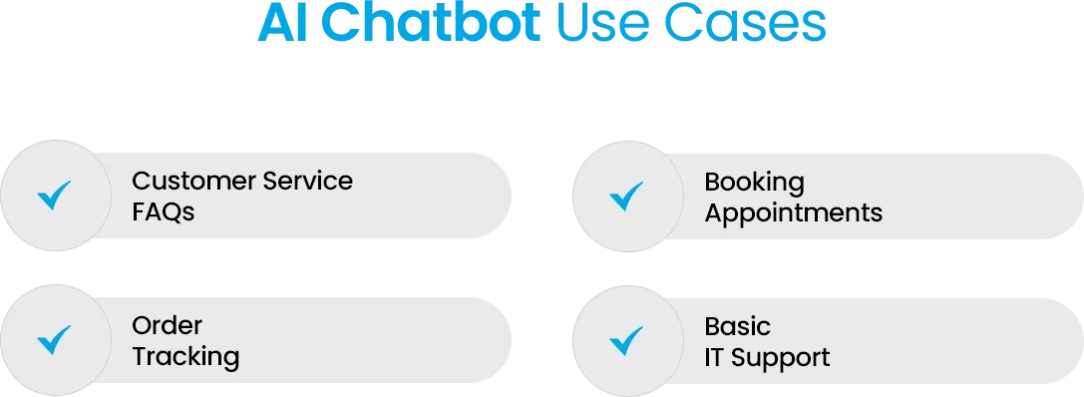
AI chatbots have become essential tools for businesses, handling customer interactions and automating tasks around the clock. They’re cost-effective, reliable, and perfect for managing repetitive queries.
- Customer Service FAQs
AI chatbots streamline customer support by answering FAQs, such as return policies or shipping details, at any hour. - Booking Appointments
Restaurants, salons, and clinics benefit from chatbots that handle bookings. - Order Tracking
For e-commerce or local deliveries, AI chatbots make it easy for customers to track orders. In busy cities like Delhi, a chatbot can provide real-time updates on delivery status, keeping customers informed and cutting down on support calls. - Basic IT Support
Larger organisations often get overwhelmed by basic IT requests like password resets. Chatbots can make these tasks easier by helping employees fix simple problems themselves. And this is how it helps IT teams to work on more important things.
A Real-World Example of AI chatbots
AI chatbots are changing the way we do things in many different businesses, from customer service to banking and food delivery.
Commonwealth Bank’s Ceba
Australia’s Commonwealth Bank introduced Ceba, an AI chatbot that handles over 200 banking tasks, from checking balances to locating ATMs. Accessible through the app and online, Ceba is a 24/7 digital assistant that saves customers time and effort. This chatbot brings banking services right to users’ fingertips, enhancing convenience and accessibility for a fast-paced, tech-savvy society.
What is an AI Agent?
More advanced than your typical chatbot, AI agents can handle a wider range of activities—from writing and coding to analysing data and making business recommendations. Powered by large language models (LLMs), AI agents go beyond simple scripted responses, bringing in context and nuance to create meaningful interactions.
Unlike basic chatbots, which stick to a pre-set list of commands, AI agents are adaptable and versatile. They use advanced machine learning techniques, including deep learning and reinforcement learning, to process and analyse vast amounts of data.
This capability lets them pull insights from multiple sources—like your company’s structured data in spreadsheets or databases, as well as unstructured information from emails or PDFs.
So, if you need a report summarised, sales trends analysed, or personalised suggestions generated, an artificial intelligence agent can handle it, seamlessly integrating with your business data.
Think of these agents as more than just a tool—it’s a proactive assistant designed to help you work smarter. It learns from past interactions, improves its responses, and even adapts to the context, making it a perfect fit for today’s fast-paced work environment.
Read our comprehensive blog on “What are AI agents?”.
AI Agent Use Cases
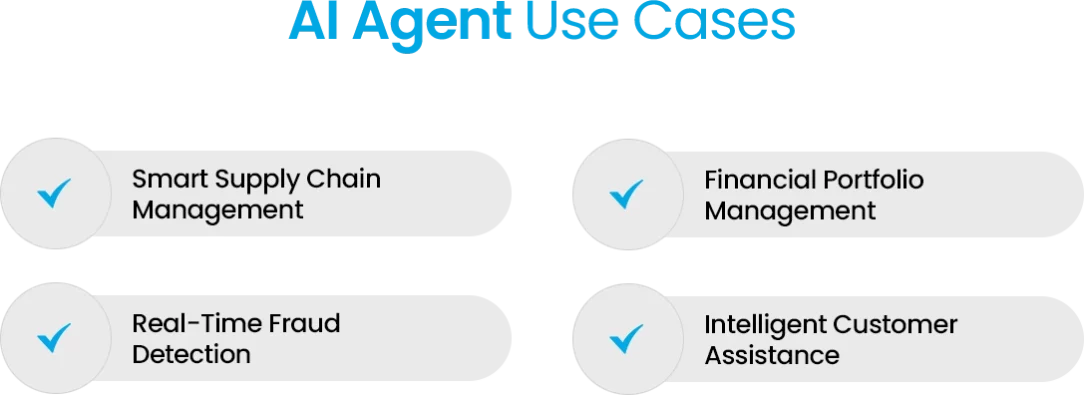
AI agents are transforming business operations with their ability to handle complex tasks, make real-time decisions, and adapt continuously. Here’s how various industries and companies are using AI agents to drive innovation and efficiency.
- Smart Supply Chain Management
Supply chain management is intricate, involving forecasting, inventory, and supplier performance. An artificial intelligent agent can simplify this by analysing data, predicting demand, and rerouting shipments. - Financial Portfolio Management
Intelligent agents are invaluable in finance, helping with portfolio management by analysing market trends and client goals. - Real-Time Fraud Detection
AI agents play a critical role in preventing financial fraud by monitoring transactions for suspicious patterns. - Intelligent Customer Assistance
Autonomous AI agents elevate customer support by handling complex queries. For example, a telecom provider might use an intelligent agent for advanced troubleshooting and personalised offers, delivering efficient, context-aware assistance.
A Real-World of AI Agents
Zomato’s AI Delivery Optimisation
In India, Zomato has integrated an AI agent into its food delivery operations, ensuring quicker, more efficient deliveries. The AI considers factors like traffic, weather, and delivery person location to assign orders intelligently, maximising speed and customer satisfaction.
AI Agent vs Chatbot – Core Concepts Defined
When it comes to AI-powered assistance, terms like chatbots and AI agents often get mixed up. Both use artificial intelligence, but they serve distinct purposes and bring different technical capabilities to the table.
Let’s dive into the key differences between AI agents and chatbots so you can understand which one might suit your needs best.
|
Feature |
AI Chatbots |
AI Agents |
|
Interaction Complexity |
Handles straightforward, rule-based conversations within a limited scope. |
Manages complex, multi-step interactions and adapts to nuanced instructions across platforms. |
|
Task Completion |
Best for simple, repetitive tasks like answering FAQs or guiding users through forms. |
Capable of tackling complex, multi-stage tasks like planning trips or handling varied service requests. |
|
Learning and Adaptation |
Typically relies on static decision trees with limited machine learning capabilities. |
Utilises continuous learning algorithms, adapting and improving with each interaction. |
|
Scope of Knowledge |
Operates within a narrow knowledge range, limited to specific domains or curated databases. |
Accesses a broad range of information sources, including real-time data and external APIs. |
Pros and Cons – Evaluating Chatbots and AI Agents for Your Business
Chatbot Pros and Cons
Pros
Chatbots are cost-effective, always available, and excel at managing routine, repetitive queries. They’re ideal for businesses that want to leverage AI in customer service without the higher costs of implementing a more complex system.
Chatbots provide predictable, controlled responses and are easier to secure, as they typically access only limited data.
Cons
Despite their advantages, chatbots are limited in handling nuanced conversations. They often fail to interpret open-ended or multi-step queries, leaving customers with scripted responses that may feel impersonal.
Moreover, because they rely on static decision trees, chatbots lack the ability to improve or adapt beyond their original programming, potentially leading to frustration for customers with more complex needs.
AI Agent Pros and Cons
Pros
There are many benefits of AI agents when it comes to complexity, adaptability, and intelligence. They offer data-driven insights, autonomous decision-making capabilities, and consistent accuracy in responses, leading to enhanced customer satisfaction.
By freeing up human agents for more intricate issues, autonomous AI agents create efficiencies across customer service workflows and provide scalable solutions for growing businesses. Their ability to continuously learn makes them a future-ready investment.
Cons
On the downside, artificial intelligence agents require significant resources for initial setup and maintenance. They also depend heavily on the quality and security of the data they are trained on, which, if compromised, could lead to unintended consequences.
Additionally, while artificial intelligence (AI) agents are incredibly effective at complex tasks, they still lack the emotional intelligence and creativity to solve nuanced issues requiring a human touch.
Choosing the Right Solution (AI Chatbot and AI Agent) for Your Needs
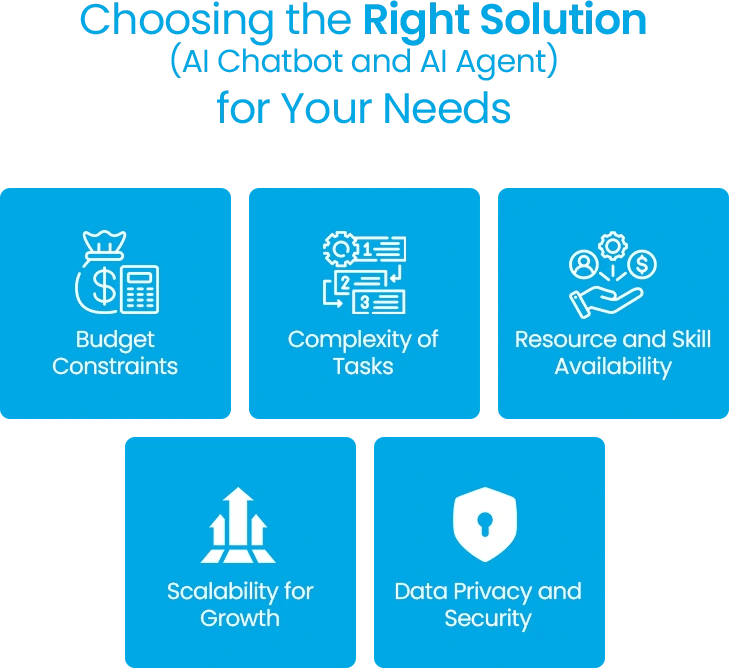
When choosing between an AI chatbot and an AI agent, it’s all about aligning the technology with your business’s unique needs and resources. Both options offer value, but they serve different purposes.
Budget Constraints
If you’re working with a limited budget, an AI chatbot is typically more affordable to implement and maintain. It can still deliver high value by handling routine tasks without the extra cost of advanced AI capabilities.
Complexity of Tasks
Think about the kinds of tasks that require automation. For simple, repetitive interactions like answering FAQs, a chatbot is a solid choice. But if you need support for complex workflows, decision-making, or multi-step processes, an intelligent agent is better equipped to manage these.
Resource and Skill Availability
AI chatbots generally require less technical expertise and maintenance, making them more accessible for smaller teams. In contrast, AI agents frequently require extensive knowledge of machine learning, natural language processing, and continuous observation. If your team has the skills and resources, an artificial intelligence agent could be a powerful asset.
Scalability for Growth
Planning for the future is crucial. Chatbots are good at answering a lot of easy questions, but when demand increases, they can find it difficult to tackle more complicated tasks. AI agents offer better scalability, making them ideal for businesses expecting significant growth or evolving customer needs.
Data Privacy and Security
Data security is crucial for companies that handle sensitive data. Because of their more limited reach, chatbots may be easier to secure, which could simplify regulatory compliance. AI agents, with their broader access, require stronger security measures, so consider this if you lean towards them.
If you need a cost-effective solution for routine tasks, go with a chatbot. But if you’re aiming for a more advanced system that can adapt, scale, and handle complexity, an AI agent may be worth the investment.
Implementation Strategies for AI Chatbots and AI Agents
Integrating Chatbots
Adding a chatbot to your business can be as easy or as hard as you want. It all depends on how much time and effort you’re willing to put in.
Most customer service chatbots start with a basic list of common questions, like “How do I reset my password?” or “What are your business hours?” For each query, you’ll set up scripted responses, ranging from quick answers to more detailed, step-by-step guidance.
These scripts can go further by adding conditional logic, branching pathways, or even integrating with other systems through APIs to pull in real-time data, like order status.
However, getting it right involves more than just scripting answers. You’ll also need to train the chatbot to recognise different ways customers might phrase these questions. Providing a wide range of examples—sometimes hundreds—helps the chatbot accurately identify and respond to queries. The more examples you give, the better it becomes at handling real-world variations.
While you can create an effective chatbot this way, there are limitations. Constantly scripting and updating a growing web of conversational paths can quickly become a time-consuming task. It’s hard to keep track of every possible question and write a specific answer for each one, especially as customer needs change over time.
Onboarding AI Agents
Onboarding an AI agent is a lot like welcoming a new team member with endless capabilities. Instead of having to learn on the job, an AI agent quickly connects to your existing knowledge sources, such as help centres, FAQs, and technical documents, and absorbs all relevant information almost instantly.
Once set up, an agent doesn’t just follow a script; it applies intelligent problem-solving, much like your human agents. It searches for relevant data, figures out the steps needed, and provides tailored solutions for your customers. This personalised approach goes beyond standard responses, giving users answers that feel intuitive and well-informed.
Today, businesses leading in AI adoption are already seeing the impact. According to Allie Hurley, Head of Global Support at ClickUp, “Our scripted chatbot produced good results, but our generative AI agent took it to a whole new level,” said Allie Hurley, ClickUp’s Head of Global Support.
Her team noticed the difference, as AI Agents not only understand complex issues but also pull relevant information from multiple sources to offer real, actionable resolutions.
While a chatbot may only suggest an article, an AI agent digs deeper, providing solutions that feel personalised and precise.
Will AI agents replace chatbots in 2025?
As AI gets smarter and smarter, we can expect AI helpers to become more and more common. These advanced systems will soon offer more natural and intuitive interactions across text, voice, and even visuals.
With a deeper grasp of context, artificial intelligence (AI) agents will deliver responses that feel highly relevant and tailored to each user’s needs. But this doesn’t mean chatbots will disappear anytime soon.
While these agents bring new possibilities, chatbots are also evolving, with practical improvements that make them even more user-friendly. In the future, chatbots will become even more useful.
They’ll be able to work better with other business tools and can be easily customised to fit specific needs. This will make them great for handling simple tasks and providing basic customer support.
For businesses, the choice between an AI agent and a chatbot—or even a mix of both—depends on specific needs. Intelligent agents can provide advanced support, while chatbots are often more cost-effective and simpler to implement. It’s about striking a balance to get the best of both technologies, maximising each tool’s unique strengths.
Conclusion: Making the Right Choice for Your Business in 2025
In a world increasingly shaped by AI, selecting the right tool—an AI chatbot or an AI agent—could be transformative for your business. If you need a reliable, cost-effective solution for straightforward tasks, a chatbot can handle common queries, make bookings, and manage simple support issues efficiently.
But if your aim is deeper, smarter automation, an intelligent agent’s capabilities go beyond; it learns from each interaction, makes real-time decisions, and adapts to complex workflows. It’s an investment for those ready to harness advanced AI’s full potential.
As you choose, keep your goals front and centre. A chatbot might suit your needs if simplicity and budget matter, while an AI agent can scale with your business, helping you stay ahead in today’s fast-paced environment. Each has unique strengths, but the best fit depends on the vision you have for your customer experience.

